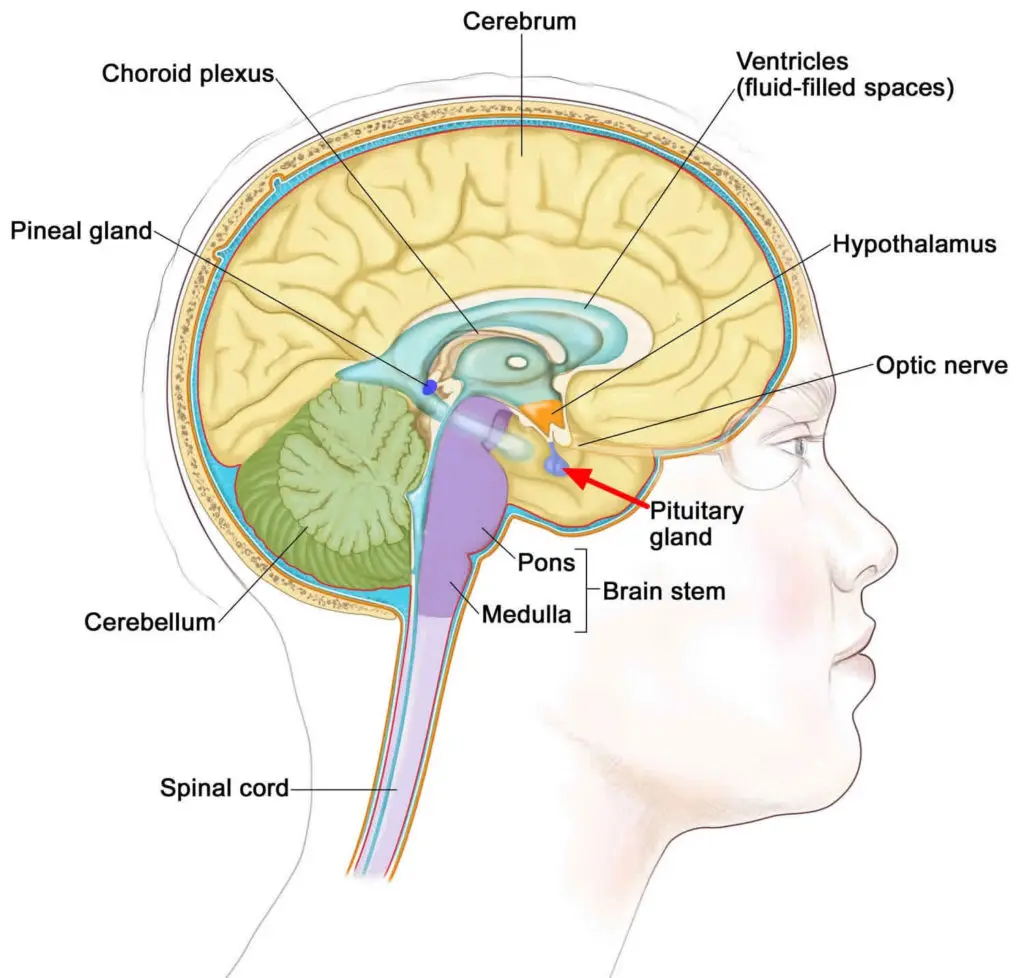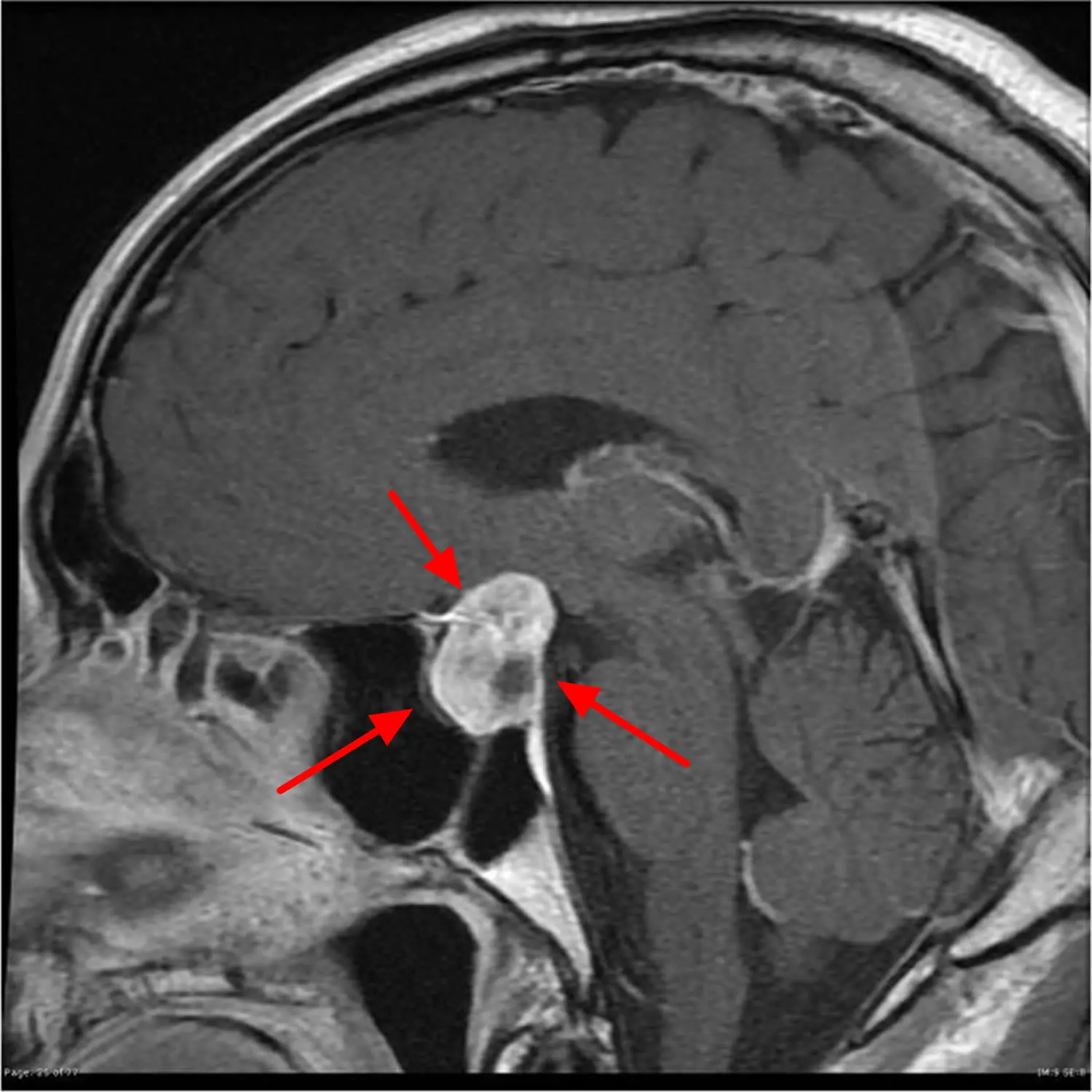Can Pituitary Adenoma be Cured?
Sometimes
The management of pituitary adenomas depends on the size, type, and symptoms; some may be effectively treated or cured, while others may require long-term management; outcomes vary, and close monitoring is often necessary

What is Pituitary Adenoma?
A pituitary adenoma is a noncancerous tumor of the pituitary gland. Treatment depends on the type of adenoma and may include medications or surgery.

Clinical Aspects

Characteristics
Noncancerous tumor that develops in the pituitary gland, a small gland at the base of the brain

Symptoms
Hormonal imbalances (depending on the hormones produced by the tumor), vision changes, headache

Diagnosis
Imaging studies, sometimes blood tests

Prognosis
Variable, depends on the size and hormonal activity of the tumor

Complications
Hormonal imbalances, complications affecting multiple systems
Etiology and Treatment

Causes
Most often sporadic, some may be associated with genetic conditions or certain genetic mutations

Treatments
Observation, medication to control hormone levels, surgery, radiation therapy

Prevention
Observation, medication to control hormone levels, surgery, radiation therapy
Public Health and Patient Perspectives

Epidemiology
Noncancerous tumor of the pituitary gland

Patient Perspectives
Observation, medications, sometimes surgery
Please remember that this information is provided for general understanding, and individual cases may vary. Always consult with healthcare professionals for personalized advice and information.
Share: